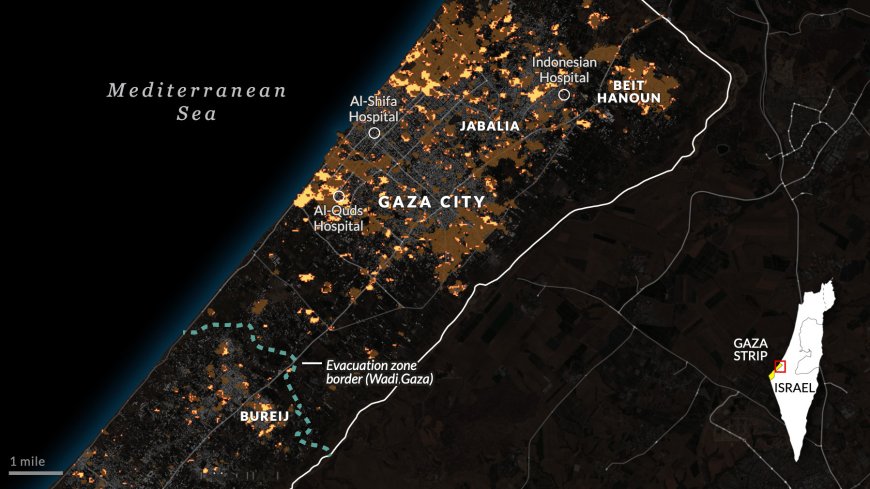Voice Against Occupation: Global Condemnation Grows Over Israel’s Plan to Seize Gaza City
Arab nations, Western allies, and global bodies condemn Israel’s Gaza City occupation plan, citing violations of law and risks to humanitarian stability.

Israel’s Security Cabinet decision to militarily enter and occupy Gaza City has triggered a wave of strong international backlash. Far from isolated, the response spans the globe—from Arab capitals to Western democracies—underscoring deep concerns about humanitarian consequences, violation of international law, and regional stability.
Arab World Responds: Condemnations and Warnings
Arab governments and organizations united in condemning Israel’s escalating military strategy as a dangerous breach of international norms:
-
Egypt’s President Abdel Fattah al-Sisi, in a phone call with Palestinian President Mahmoud Abbas, denounced the plan as a “new catastrophe” and warned it undermines ceasefire and aid efforts. Egypt affirmed its commitment to defending Palestinian rights and preventing regional escalation.Middle East Monitor
-
Jordan’s Foreign Ministry described the move as further evidence of Israel’s extremist policies that weaponize starvation and siege. The kingdom reaffirmed its support for diplomatic initiatives led by Qatar, Egypt, and the U.S.Middle East Monitor
-
Saudi Arabia, Kuwait, and the UAE all issued strong condemnation—labeling the plan a clear violation of international humanitarian law and warning of catastrophic intensification of civilian suffering.Middle East Monitor
-
The Arab League, along with the Arab Parliament, accused Israel of waging a “unhinged war” with genocidal intent against the Palestinian people.Middle East Monitor
-
Turkey’s Foreign Minister Hakan Fidan urged Muslim nations to act together in opposition, characterizing the plan as a genocidal escalation. The Organisation of Islamic Cooperation convened an emergency session to rally global action.ReutersThe Guardian
-
The Palestinian Authority called Israel’s move an unprecedented provocation, appealing for international intervention and warning that seizing Gaza City could obliterate any remaining prospects for peace.The GuardianAl Jazeera
Allies and Western Democracies Speak Out
Global responses extended beyond the Middle East:
-
A unified joint statement from Australia, Germany, Italy, New Zealand, and the United Kingdom warned that Israel’s plan risks violating international humanitarian law, endangering hostages, and precipitating mass displacement. The ministers emphasized that attempts at annexation or settlement violate international norms.The GuardianNews.com.au
-
In tandem, Australian PM Anthony Albanese and New Zealand PM Christopher Luxon, during bilateral talks, called for de-escalation, humanitarian relief, and a return to diplomatic efforts—reinforcing their countries’ commitment to a two-state solution.The GuardianNews.com.au
-
European leaders joined the criticism: Germany suspended arms exports capable of being used in Gaza, with Chancellor Friedrich Merz asserting that further military escalation makes arms sales untenable.TIME
-
The United Nations, France, Canada, Saudi Arabia, Iran, Pakistan, and the EU also condemned the plan, citing violations of international law and the deepening humanitarian crisis.AP News+1
Humanitarian Fallout and the Defense of Hostages
Reports indicate that only around 20 of the remaining hostages in Gaza are believed to be alive. Families and protestors within Israel have decried the plan as both morally fraught and tactically reckless. Critics argue it threatens to undercut rescue and release efforts while escalating violence.ReutersAP News
Meanwhile, Gaza’s humanitarian landscape continues to deteriorate, with widespread famine-like conditions. Civilian vulnerabilities multiply as logistical obstacles of aid distribution worsen under renewed military pressure.
Legal Frameworks and the Global Call for Accountability
International and humanitarian law provide the context for much of the criticism:
-
The International Court of Justice (ICJ) has previously ruled that prolonged occupation violates international law—citing forced displacement and settlement expansion as breaches of the Fourth Geneva Convention.Wikipedia+1
-
UN Security Council resolutions, including Resolution 2334, have framed Israeli settlement activity and land grabs as having “no legal validity.” Experts argue that Gaza City’s seizure may fall into similar categories of illegal occupation.Wikipedia
Together, these statutes reinforce the principle that sustainable peace cannot evolve from forced occupation or demographic engineering.
What This Means
Israel's plan to seize Gaza City arrives at a critical moment, uniting opposition across continents. Arab states worry a military takeover threatens regional arrangements—even as Western powers denounce it through diplomatic channels and economic measures. The risk extends beyond Gaza: As David Rothwell of Australian National University noted, the invocation of “annexation” and settlement sets a dangerous precedent and undercuts the feasibility of a two-state solution.The Guardian
Conclusion
From Cairo to Canberra, the message is resounding: Israel’s Gaza City plan is deemed a serious escalation with grave legal and humanitarian implications. World leaders and regional blocs are urging a redirection from war to diplomacy—including ceasefires, negotiations, and protection of civilians. The global backlash highlights a diplomatic inflection point: domestic political gambits are yielding international consequences in real time.











